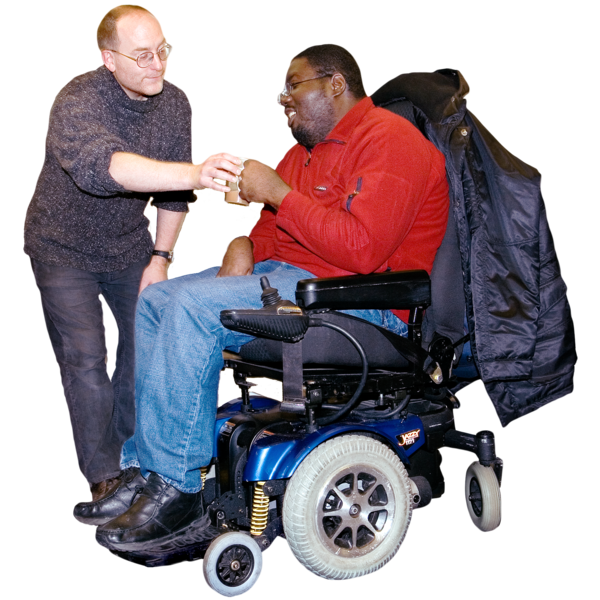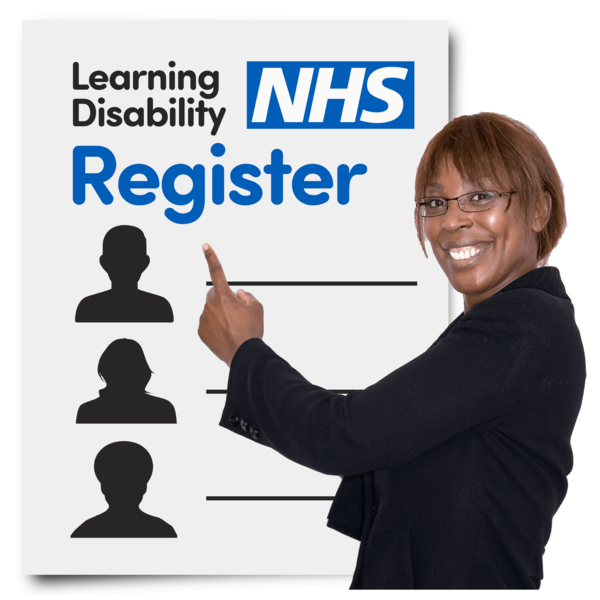HRH The Duchess of Edinburgh, Patron of
learning disability
 A learning disability is to do with the way someone's brain works. It makes it harder for someone to learn, understand or do things.
charity Royal Mencap Society, has attended the charity’s inaugural health inequalities summit at St Bartholomew’s Hospital in London to learn more about the healthcare inequalities faced by people with a learning disability. Her Royal Highness has supported the charity for nearly 20 years.
A learning disability is to do with the way someone's brain works. It makes it harder for someone to learn, understand or do things.
charity Royal Mencap Society, has attended the charity’s inaugural health inequalities summit at St Bartholomew’s Hospital in London to learn more about the healthcare inequalities faced by people with a learning disability. Her Royal Highness has supported the charity for nearly 20 years.
At a time of huge pressure across health and
social care
 Social care means the services that give care and support to people who need it.
and new Integrated Care Systems being introduced across England, health leaders and campaigners came together to talk about life expectancy, avoidable deaths and other barriers people with a learning disability face accessing healthcare. A particular focus was how they could work together to increase the number of people on the
Learning Disability register
Social care means the services that give care and support to people who need it.
and new Integrated Care Systems being introduced across England, health leaders and campaigners came together to talk about life expectancy, avoidable deaths and other barriers people with a learning disability face accessing healthcare. A particular focus was how they could work together to increase the number of people on the
Learning Disability register
 The learning disability register is a list of people with a learning disability that the doctor’s surgery looks after.
and speed up the roll out of the Oliver McGowan
Mandatory
The learning disability register is a list of people with a learning disability that the doctor’s surgery looks after.
and speed up the roll out of the Oliver McGowan
Mandatory
 Mandatory means that something must be done.
Training.
Mandatory means that something must be done.
Training.
HRH heard from NHS Chief Executive Amanda Pritchard, Mencap Chair Dame Carolyn Fairbairn, and campaigners like Cath Horbury who spoke about the benefits of annual health checks. Paula McGowan also spoke passionately about her work campaigning for mandatory training for health and social care staff following the death of her son Oliver. HRH then met Treat Me Well campaigners and people involved in the Oliver McGowan Mandatory Training.
Mencap’s Treat Me Well campaign – which launched in February 2018 - has aimed to transform how the NHS treats people with a learning disability. Whilst some progress has been made, including the Oliver McGowan training being made mandatory and a significant increase in patients with a learning disability having a Learning Disability Health Check, people with a learning disability still face shocking health inequalities.
Last year’s Learning Disability Mortality Review showed the appalling level of premature mortality and avoidable deaths experienced by people with a learning disability; on average people with a learning disability die 25 years younger than the general population and 49% of deaths of people with a learning disability were judged avoidable, compared to 22% for the general population.
Mencap hopes the summit will help with long term joint planning and action to reduce the inequalities people with a learning disability face. The aim is that everyone with a learning disability will eventually be on the Learning Disability register and the Oliver McGowan Mandatory Training being swiftly rolled out.
NHS chief executive Amanda Pritchard said:
“We know that people with learning disabilities face worse health outcomes and at times have difficulties accessing healthcare – I was delighted to attend this really important inaugural summit so that together, we can learn more about these issues and find ways to address them.
“Significant progress has been made, ensuring that increasing numbers of people with a learning disability are receiving annual health checks. We know there is a lot more to do and our Integrated Care System are well placed to help – they can ensure services work even more closely together to reduce any barriers to access, reduce long inpatient stays where we can and continue to ensure staff at all levels undertake the Oliver McGowan mandatory training.”
Dame Carolyn Fairbairn, chair, Royal Mencap Society said:
“Health inequalities cannot be ignored. People with a learning disability have a right to access good quality and timely care that meets their needs and helps support them to live happy and healthy lives. We hope today’s inaugural Health Inequalities Summit is the first step on the road to working together to deliver a shared plan to tackle the shocking levels of premature death and health inequalities that people with a learning disability continue to face.”
Treat Me Well campaigner and summit attendee Michelle Ornstein said:
“I am part of a group of people with a learning disability that promote annual health checks and encourage people to sign up to the learning disability register. I feel very strongly that other people with a learning disability need to know what a difference some small steps can make to their lives. It was very special to meet The Duchess of Edinburgh and see everyone working together to make changes”.
-ENDS-
For further information or to arrange an
interview
 An interview is a meeting where you talk to someone or a group of people about something. When you have an interview for a job, you have to answer questions and say why you would be good at the job. The person who gives the best answers is offered the job.
with a Mencap
spokesperson
An interview is a meeting where you talk to someone or a group of people about something. When you have an interview for a job, you have to answer questions and say why you would be good at the job. The person who gives the best answers is offered the job.
with a Mencap
spokesperson
 A spokesperson is someone who speaks up about something. They usually speak up on behalf of a group or
organisation
A spokesperson is someone who speaks up about something. They usually speak up on behalf of a group or
organisation
 An organisation are a group of people who work together.
.
, campaigner or
case study
An organisation are a group of people who work together.
.
, campaigner or
case study
 A case study is a piece of writing that tells people more information about someone's experience.
, please contact Mencap’s media team on: media@mencap.org.uk or 02076965414 (including out of hours).
A case study is a piece of writing that tells people more information about someone's experience.
, please contact Mencap’s media team on: media@mencap.org.uk or 02076965414 (including out of hours).
Notes to editors:
i https://www.kcl.ac.uk/ioppn/assets/fans-dept/leder-main-report-hyperlinked.pdf
About Mencap:
There are approximately 1.5 million people with a learning disability in the UK. Mencap works to support people with a learning disability, their families and carers by fighting to change laws, improve services and access to
education
 Education is when you learn things. When you fill in a form to get a job, education means you write where you went to school, college or university.
,
employment
Education is when you learn things. When you fill in a form to get a job, education means you write where you went to school, college or university.
,
employment
 Employment means having a job.
and
leisure
Employment means having a job.
and
leisure
 Leisure is when you have time to do things you enjoy like playing sports or going to the pub.
facilities. Mencap supports thousands of people with a learning disability to live their lives the way they want: www.mencap.org.uk
Leisure is when you have time to do things you enjoy like playing sports or going to the pub.
facilities. Mencap supports thousands of people with a learning disability to live their lives the way they want: www.mencap.org.uk
For advice and information about learning disability and Mencap services in your area, contact Mencap’s Freephone Learning Disability Helpline on 0808 808 1111 (10am-3pm, Monday-Friday) or email helpline@mencap.org.uk.
What is a learning disability?
- A learning disability is a reduced intellectual ability which means that people might need support with everyday tasks – for example shopping and cooking, or travelling to new places – which affects someone for their whole life;
- Learning disability is NOT a mental illness or a learning difficulty, such as
dyslexia
 Dyslexia is a learning difficulty. People who have dyslexia can find it hard to read, write and spell.
. Very often the term ‘learning difficulty’ is wrongly used interchangeably with ‘learning disability’;
Dyslexia is a learning difficulty. People who have dyslexia can find it hard to read, write and spell.
. Very often the term ‘learning difficulty’ is wrongly used interchangeably with ‘learning disability’; - People with a learning disability can take longer to learn new things and may need support to develop new skills, understand difficult information and engage with other people. The level of support someone needs is different with every individual. For example, someone with a severe learning disability might need much more support with daily tasks than someone with a mild learning disability.
